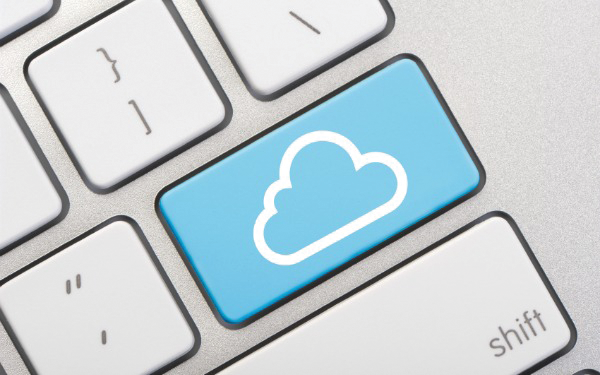From the October 2016 Issue.
One of the joys I have by being in the public eye so often is answering questions from attendees of CPE events as well as from this column. It is clear that strategies about the cloud are not understood. It may be more accurate to say that the claims are frequently not believed, the economics are not necessarily cheaper, and your IT problems may not go away when you use the cloud while you sing Kumbaya. I’m not anti-cloud or pro-cloud, but pro solving business problems in the best way available, at the least cost.
Although I didn’t invent the internet, I’ve been using it routinely since the 1970’s. I was fortunate to be involved with some of the first remote technologies, first hosting of applications, including QuickBooks and all of the first few SaaS (Software as a Service=runs in a browser) products. For some applications and businesses, that does mean that cloud is your best option. For others that may not be true. Organizations that have products to sell based on the cloud will clearly claim the merits. Entities that have had historically bad or marginal IT support may find improvements by using cloud technologies. Shops that have well run premise based IT rarely save money by using the cloud. Let’s see if we can provide guidance to help you with your IT strategy that may involve using cloud techniques.
What Works Best in the Cloud?
Some would simply say everything. During August at multiple conferences I heard presenters make claims that if you weren’t completely in the cloud, you were “missing out” and “foolish”. While listening to the presenters, I was reminded of FUD (Fear, Uncertainty and Doubt) and FoMO (Fear of missing out) and the old 1500’s phrase “a fool and his money are soon parted” which was certainly observed by King Solomon, too. While I certainly don’t have the wisdom of the ancients or the divine vision of the future, these things seem to be true right now:
Working well in the cloud:
- Sales Tax calculations – as evidenced by Avalara, ADP, CCH and other providers
- Expense reporting – think Concur, Tallie, Expensify, Nexonia
- Bill payment – the leading product Bill.com, MineralTree and others
- Need collaboration for documents and files
- Office 365 runs a hybrid capability of premise based applications, cloud storage and SaaS applications
- Zoho Docs is an online document management system with deep collaboration inside their system and outside their system with Microsoft Office
- Google Docs has online and offline editing capabilities
- Portals – ShareFile, eFileCabinet SecureDrawer, XCM Portal, Zoho Client Portal, CCH Portal, and other portals provided by practice management, document management, workflow or technology approaches such as SharePoint, Google Docs/Sites or Box.net.
- Accounting and Payroll Software – some are making this work right including AccountantsWorld, Intuit, Xero, Intacct and a few others.
- Credit Card and ACH – Intuit Payment Processing, Sage Payments, PayPal, Square and more
Note that these cloud providers have worked on pricing models that are profitable while providing a service to you or your clients at rates that should have a positive ROI while saving you time. All named products are SaaS. Businesses look at these categories and sometimes choose alternate methods, such as spreadsheets for expenses or to not accept credit cards based on their perceived costs and value. Most of these products can be used with other SaaS products or with hosted or premise based products to create a hybrid solution.
Working to get to the cloud:
- Hosted offerings of all kinds – this is where traditional applications are run in a data center extending access via Microsoft RDS, Citrix or some other technology. Examples include:
- Accounting software – QuickBooks desktop, Epicor, Open Systems TRAVERSE, Sage 300
- Cloud providers – typically take other applications and run them for you on their equipment, such as CPA firm software from CCH, Thomson, Intuit or Drake
- Email – provided by Microsoft via Office 365 or other email hosting providers, typically in the $4-15/month/user range depending on features
- Most hosted offerings are from $125-250 per user per month
Users are choosing these methods because of perceived or real cost savings. The recurring cost model eliminates the upfront capital expenditure, but typically results in greater long-term costs. Frequently hosting is used because internal or contracted support could not make the technologies work and the vendor has a standard implementation that they are responsible to maintain. Risks to this approach are that if something major goes wrong or there are performance issues, you have no way to resolve the problems and are entirely at the mercy of the vendors. Also, recurring monthly fees can be increased at contract renewal time, sometimes with surprising increases.
Decided it is faster and cheaper to stay premise based:
- Premise based file server and workstations that have managed services and a private cloud with Citrix, Microsoft RDS or a VDI technology. Most managed service providers charge $100-150/per user per month.
- Use a remote sharing tool like MyQuickConnect, GoToMyPC, or LogMeIn Pro
- Run dominantly PC/Mac based applications and only occasionally need remote/work at home access
- Have enough expertise to maintain a system after it is installed or have an internal IT team with enough skills to implement and maintain.
With these strategies, you’ve looked at your business need, determined that most of your applications are still premise based, that you are willing to spend the capital upfront to reduce the expenditure over a longer period, and that you can get appropriate anywhere, anytime, any device access with the remote technologies. Further, you own the products and can choose to use them for longer periods of time if the economics or business conditions demand it.
And What Works Best for my Firm?
First, feel comfortable that there are firms that are completely premise based and firms that are completely cloud based. Some use hosting, some use SaaS, some use remote access techniques. All approaches can give the advantages of anywhere, anytime, any device access when implemented properly.
Second, remember to include the costs of redundant internet lines if you don’t have them today, because while you may be able to work from home, you don’t want to send everyone home each time your internet service isn’t working. A number of the cable providers give sporadic service with slowdowns and outages. Cloud vendors will always try to point to solving the problem with more speed, but that usually is only covering up some deeper problem.
Third, the more complex you are, the harder it will be to run everything in the cloud. You’ll be more likely to run a hybrid implementation. Integration costs will likely increase and upgrades to disparate systems are more likely to break your integrations. This could force you back to a premise based model that is maintained by a knowledgeable managed service company.
Costs don’t necessarily drop when you use cloud technologies and in fact frequently increase. You have to look at the benefits for the costs and run your own numbers. I’m happy to provide an Excel based technology costing model for your use, where you should plug your own numbers and assumptions. It’s not inevitable that “everything” will be in the cloud. I had hoped that the cloud would be working well enough and fast enough by 2010 that it would be the most economical option. It is not.
Just like the 1980’s when I was looking for the year of the network, the year of the network finally arrived in the mid-90’s, and many didn’t implement strong networks until the mid-2000’s. I’m looking for the year of the cloud. BTW, vendors who sell or promote cloud services will simply say I “don’t get it”. I get it completely. Are buying the cloud or getting fog? It seems to be like a mirage…the closer we get the farther away the oasis moves.
Thanks for reading CPA Practice Advisor!
Subscribe Already registered? Log In
Need more information? Read the FAQs





